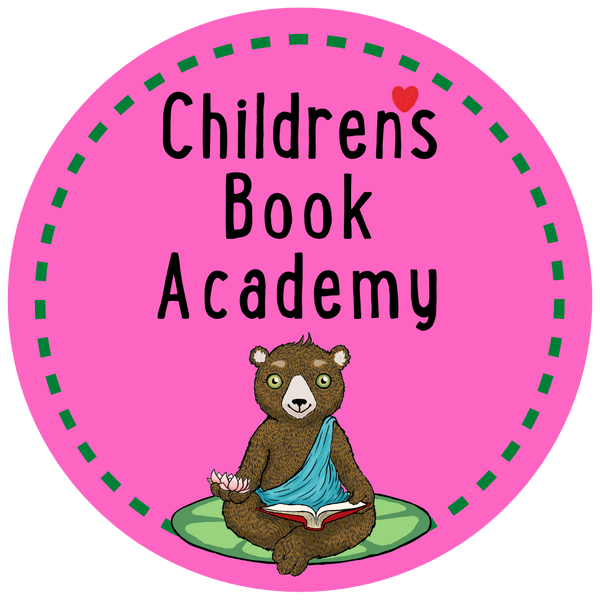Friendship, perseverance, stereotyping, inclusion, individuality, prejudice…What is your book is about? In one word.
“No way!” you say. “My book is about many things.”
Yes, it is. But have you ever heard from a critique partner or editor that your story lacks focus?
“No way!” you say. “My book is about many things.”
Yes, it is. But have you ever heard from a critique partner or editor that your story lacks focus?
Ever feel like this when you are chasing down what your story is about?
Choosing one or two words to describe your subject may help. While most of us avoid didacticism and writing to set up a moral as Aesop did, most books have take-away messages. Knowing your subject and theme will help you focus your text, write loglines and pitches, find comparison titles, market and promote your book. Your subject and theme will ultimately help people find your book online, in libraries and in bookstores. Along the way, it’s useful to understand how subject tags are assigned to books in the first place.
The Children’s and Young Adult’s Cataloging Program (CYAC) division of the Library of Congress assigns subject headings to each juvenile book applying for an ISBN. These subjects are often listed on the copyright page before the ISBN. Acquiring librarians may tag your books with additional subjects for internal library searches. These subject headings come from a limited and controlled vocabulary used to describe the contents of books. Subject headings are different from key words in this way. Key words are from natural speech. Key words are for broad searches of subject, title, author and abstract (summary). Subject headings are for narrowing your search.
In addition to assigning subject tags, The CYAC writes a succinct summary for each book, also usually found on the copyright page. While not as supercharged as an elevator pitch, thinking about how your story will be summarized and writing a summary yourself will help you stay focused during revisions and in writing promotion copy as well.
Let’s look at a real-world example of these summaries and subject tags.
Choosing one or two words to describe your subject may help. While most of us avoid didacticism and writing to set up a moral as Aesop did, most books have take-away messages. Knowing your subject and theme will help you focus your text, write loglines and pitches, find comparison titles, market and promote your book. Your subject and theme will ultimately help people find your book online, in libraries and in bookstores. Along the way, it’s useful to understand how subject tags are assigned to books in the first place.
The Children’s and Young Adult’s Cataloging Program (CYAC) division of the Library of Congress assigns subject headings to each juvenile book applying for an ISBN. These subjects are often listed on the copyright page before the ISBN. Acquiring librarians may tag your books with additional subjects for internal library searches. These subject headings come from a limited and controlled vocabulary used to describe the contents of books. Subject headings are different from key words in this way. Key words are from natural speech. Key words are for broad searches of subject, title, author and abstract (summary). Subject headings are for narrowing your search.
In addition to assigning subject tags, The CYAC writes a succinct summary for each book, also usually found on the copyright page. While not as supercharged as an elevator pitch, thinking about how your story will be summarized and writing a summary yourself will help you stay focused during revisions and in writing promotion copy as well.
Let’s look at a real-world example of these summaries and subject tags.
My picture book NO PARTY POOPERS! illustrated by Lucy Semple (Little Bee 2020) was summarized and tagged in the following way on the copyright page.
Summary: “Two bears decide to throw a party but the stereotypes one has about all of their neighbors leave them with no one to invite.
(As an author, you may find the summary of your book very limiting. This summary doesn’t include that one bear fears that animals besides bears will be party poopers or his realization that he is really the party pooper or that he ultimately invites his entire neighborhood to his party. The subject tags don’t include neighbors or inclusion or friendship.)
Summary: “Two bears decide to throw a party but the stereotypes one has about all of their neighbors leave them with no one to invite.
(As an author, you may find the summary of your book very limiting. This summary doesn’t include that one bear fears that animals besides bears will be party poopers or his realization that he is really the party pooper or that he ultimately invites his entire neighborhood to his party. The subject tags don’t include neighbors or inclusion or friendship.)
Subjects: CYAC:
Parties—Fiction
Bears—Fiction
Animals—Fiction
Stereotypes (Social Psychology)—Fiction
These subject heading tags are part of the metadata that are attached to your book.
If you are not familiar with WorldCat.org: The World's Largest Library Catalog I encourage you to explore this wonderful resource. WorldCat uses CYAC subject headings and expands them too. Here are the subject tags for NO PARTY POOPERS!
Parties—Fiction
Bears—Fiction
Animals—Fiction
Stereotypes (Social Psychology)—Fiction
These subject heading tags are part of the metadata that are attached to your book.
If you are not familiar with WorldCat.org: The World's Largest Library Catalog I encourage you to explore this wonderful resource. WorldCat uses CYAC subject headings and expands them too. Here are the subject tags for NO PARTY POOPERS!
In WorldCat I clicked on subject tags to search for recently published comp titles. Then seeing how these books were tagged led me to additional books about prejudice, individuality and racism. For writers looking for comp titles and mentor texts and educators wanting to curate a list of titles about a subject this resource is invaluable.
So is NoveList K-8 Plus. NoveList is a resource available online through most public libraries for researching like titles, reviews, annotations, book discussion guides, BookTalks, and feature articles.
I found NoveList the most powerful and quickest way to find very specific comp titles for my book using the subject word “stereotype.” Note: there are many books about gender stereotyping, but I was searching for books with animal characters that were about stereotyping in general. Because most agents and editors like writers to have current comp titles, the ability to limit searches to a certain publication date range in NoveList is a real time saver.
So is NoveList K-8 Plus. NoveList is a resource available online through most public libraries for researching like titles, reviews, annotations, book discussion guides, BookTalks, and feature articles.
I found NoveList the most powerful and quickest way to find very specific comp titles for my book using the subject word “stereotype.” Note: there are many books about gender stereotyping, but I was searching for books with animal characters that were about stereotyping in general. Because most agents and editors like writers to have current comp titles, the ability to limit searches to a certain publication date range in NoveList is a real time saver.
My searches led me to comp titles that I curated and created a social media graphic to help readers find books about this subject.
As a side note, I found Amazon Books not only to be the least helpful in locating comp titles, but also the most difficult in finding my title using keyword and subject searches. I needed to use all the CYAC subjects in my Amazon search to bring up my book. Only one of the wonderful titles above appeared in my search using “stereotype” alone.
In my research for this blog, a librarian passed on a “librarian trick” to assist searches. Using an asterisk at the end of a word stem e.g., stereotyp* will bring up the word with different endings. (Searching for stereotyping won’t bring up the titles that searching for stereotype did or stereotyp*.) One can also use Boolean Operators AND, OR, NOT to limit your search further.
As you know, reviewers and critics may add additional and sometimes surprising subject “tags” to your book as well. “My book is about that?” you will say. A book is born anew with every reader. Whatever the subject, I hope that using the power of the subject tag will help you in your journey to place your story in readers’ hands.
In my research for this blog, a librarian passed on a “librarian trick” to assist searches. Using an asterisk at the end of a word stem e.g., stereotyp* will bring up the word with different endings. (Searching for stereotyping won’t bring up the titles that searching for stereotype did or stereotyp*.) One can also use Boolean Operators AND, OR, NOT to limit your search further.
As you know, reviewers and critics may add additional and sometimes surprising subject “tags” to your book as well. “My book is about that?” you will say. A book is born anew with every reader. Whatever the subject, I hope that using the power of the subject tag will help you in your journey to place your story in readers’ hands.
BIO: Gretchen Brandenburg McLellan is a former elementary reading specialist who now devotes herself to tutoring and writing for children and visiting schools. She is the author of Mrs. McBee Leaves Room 3, Grace Zong ill. (Peachtree), I’m Done! Catherine Lazar Odell ill. (Holiday House) and Button and Bundle, Gillian Flint ill. (Knopf), No Party Poopers!, Lucy Semple ill. (Little Bee), and When Your Daddy’s a Soldier, E.G. Keller (Philomel 2022). She writes chapter books and middle-grade fiction as well.
Gretchen grew up as a global nomad, daughter of a career Army officer, and lived on three continents. She has settled in Washington state where she lives with her husband, stunt squirrels, nomadic neighborhood chickens, and celebrates when her children and grandchildren come home. Children will find a home in her heartfelt books about community, courage and compassion.
When she isn’t writing or teaching, Gretchen can be found reading, playing word games, attending plays, hiking in the woods, x-country skiing and sewing.
CONNECT:
https://www.gretchenmclellan.com
https://www.instagram.com/gretchenmclellan
https://www.twiter.com/gmclellan
Gretchen grew up as a global nomad, daughter of a career Army officer, and lived on three continents. She has settled in Washington state where she lives with her husband, stunt squirrels, nomadic neighborhood chickens, and celebrates when her children and grandchildren come home. Children will find a home in her heartfelt books about community, courage and compassion.
When she isn’t writing or teaching, Gretchen can be found reading, playing word games, attending plays, hiking in the woods, x-country skiing and sewing.
CONNECT:
https://www.gretchenmclellan.com
https://www.instagram.com/gretchenmclellan
https://www.twiter.com/gmclellan
Fabulous Alert!!!
OMG! Mira here, I thought that was fabulous!!!! I'm so thrilled to announce that wonderfully generous Gretchen McLellan will be on one of our awesome scholarship fundraising panels for this year's Picture Book Palooza! She'll be speaking about and sharing techniques and insights into writing informational fiction. Hmmm. Wondering what that is? Come find out. It's currently only $59 and will be spectacular with 26 speakers, free worksheets, handouts, giveaways and prizes and lots of fabulous submission opportunities to agents, editors, art directors and publishers. Wow! Grab your seat here before the price goes up Aug 20.
PS Please leave Gretchen a lovely message. This was awesome that she gave so much really helpful info xoxox












